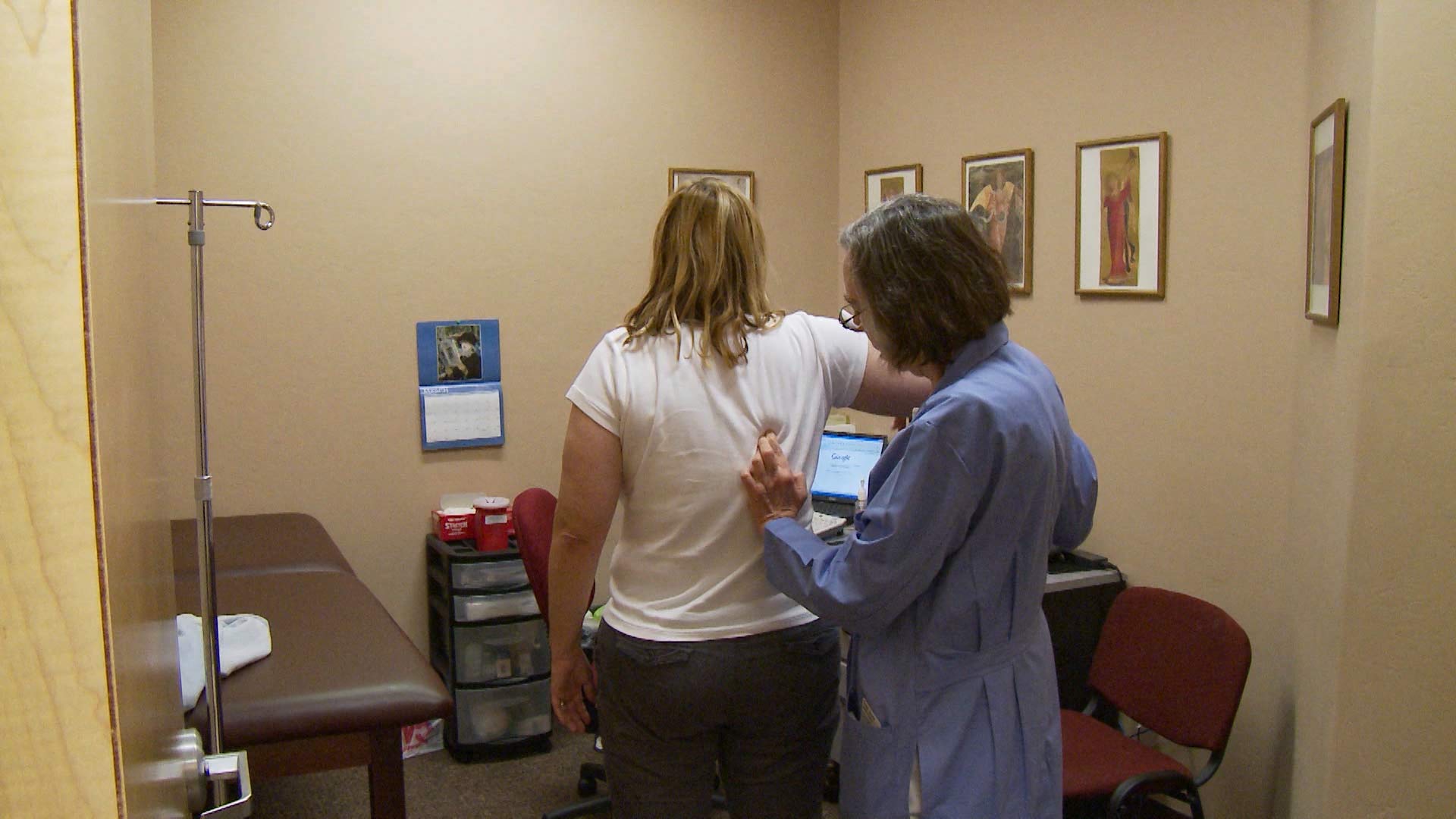 A health professional examines a patient.
A health professional examines a patient.
The bacterial infection that is usually spread by sexual contact, is 100% treatable, thanks to the antibiotic penicillin. It is also known as the “great imitator,” because of its mild symptoms such as small lesions, non-itchy skin rashes, or even joint or muscle pain.
If left untreated, the disease can cause cardiovascular or neurological problems.
Assistant medical director for the Pima County Health Department Dr. Daniel Casto said that individuals who are infected can be asymptomatic, which makes it challenging to diagnose or treat patients.
Since 2015, the state of Arizona has seen a 449% increase in syphilis cases in women. The number of congenital syphilis cases has doubled each year since then.
In 2022, there were 187 cases in babies, resulting in 21 stillbirths or infant deaths.
So far this year, there are four confirmed cases of congenital syphilis in Pima County.
“So we’re probably on track to see about the same, which is not reassuring,” Casto said. “We historically were running at five cases so we are still five times higher than we wanna be.”
Last month, the CDC released an annual surveillance report of STDs in the United States, what CDC epidemiologist in the division of STD Prevention Elizabeth Torrone Torrone called a sobering report.
Not too long ago, syphilis was nearly eliminated but rates have steadily increased over the past two decades. From 2020 to 2021, rates increased 31%.
“There were over 2800 congenital syphilis cases identified in 2021 alone and sadly those cases included 220 congenital syphilis stillbirth and infant deaths and I think what’s so concerning about this epidemic is those cases and those deaths, including those that occurred in Arizona, could have been prevented,” Torrone said.
Deputy Bureau Chief for the Arizona Department of Health Services Rebecca Scranton said the data is just the tip of the iceberg.
“We have thousands of syphilis cases every year happening in Arizona, and that makes it really, really hard to prevent cases in babies because the potential to become infected or reinfect during pregnancy is higher when there’s more syphilis spreading in your community,” Scranton said.
Healthcare professionals focus on monitoring trends because of severe outcomes correlated to syphilis.
“While partner finding may have changed a little but in the beginning of the response, we were still seeing cases going up during COVID, before COVID, so the trends are not unique to COVID, but some of the ways in which the pandemic response did impact our ability to intervene on STIs,” Scranton said.
Prior to the pandemic, public healthcare infrastructure was already spread thin, only exacerbating existing issues such as clinics closing their hours or even supply chain issues of obtaining testing equipment and treatment to communities. “We’ve had challenges with the people who typically do the case investigation getting shifted to work on COVID for, you know, six months, a year, or a couple of years, so that’s taken away opportunities to identify contacts and get contacts into care and treatment,” Scranton said.
Casto said that factors that seem to contribute to the increasing rates are substance abuse or unstable housing, or even what Torrone called “amplified barriers,” such as concerns about transportation or serving as full-time caretakers for others might prevent pregnant people from seeking quality care during pregnancy.
“One issue is that not everybody has the ability to access that early prenatal care early in their pregnancy, there’s a lot of barriers that pregnant people face to accessing care and then it is possible that some people who access care, their provider isn’t offering them that or isn’t doing the screening that they should be doing at that first prenatal care visit,” Torrone said.
Torrone said that by meeting people where they are, can help prevent congenital syphilis outcomes.
“That means things like ensuring that substance use facilities have syphilis on their mind as well and when they are providing substance use disorder care for somebody, they’re also ensuring they’re getting care, prenatal care and linkage to sexual health care like syphilis screening.” Torrone said.
Casto said that clinicians who treat patients should have a heightened awareness both for syphilis and pregnancy to prevent so-called missed opportunities. The key is to test more.
“There are two kinds of test results, rapid which aren’t as accurate but you get the result immediately, and then there’s the delayed blood tests that come back two or three days later,” Casto said.
Sometimes the delay is where healthcare providers “lose” someone, which is why increased efforts in tracking down the patients and their contacts can be beneficial.
Torrone said that long-term structural issues can be addressed by implementing policy to ensure quality prenatal care and syphilis screening and treatment in non-traditional settings as well as ensuring a strong relationship between the emergency department and the public health provider.
“There are so many adverse outcomes that happen to babies in the United States that we have no control over, but congenital syphilis is one we can actually prevent,” Torrone said.
STD surveillance data from 2022 is expected to be released later this year by the CDC.

By submitting your comments, you hereby give AZPM the right to post your comments and potentially use them in any other form of media operated by this institution.